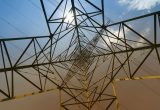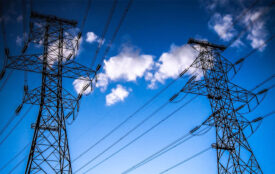Electrifying Nigerian Agriculture with Clean Minigrids to Improve Livelihoods
A new Power Africa study finds immediate opportunity to initiate and scale the productive use of energy from Nigerian minigrids by electrifying three prevalent agricultural processing activities: rice milling, grain flour milling, and cassava grating.
For the hundreds of millions of people living without electricity access or poor grid supply, the ultimate goal of electrification is seamless integration of reliable power and income-generating activities that propel communities forward. Solar hybrid minigrids can provide cost-competitive and reliable service with plenty of power to run productivity-enhancing machinery to do just that.
In theory, these “productive use” activities can ensure steady sales for the minigrid company, allowing them to pay off their investment and then reinvest in bringing power to still more customers. In practice, most electrification efforts have focused on ensuring electricity supply, leaving electricity demand to grow organically. Today, minigrid loads throughout sub-Saharan Africa remain low, challenging companies, consumers, and development partners to stimulate the productive use of electricity.
In Nigeria, agriculture is the bedrock of the non-oil economy, employing two-thirds of workers and accounting for nearly a quarter of national GDP. While a sizeable portion of economic activity, agriculture contributed to just 2.4 percent of Nigeria’s total foreign earnings in 2019. Strengthening agricultural exports could pay macroeconomic dividends by reducing Nigerian dependence on foreign exchange from exporting oil to fickle international markets. But energy poverty applies friction across the entire agricultural value chain, increasing costs and decreasing quality of agricultural products and hampering export potential.
Overcoming Agricultural Energy Challenges
In our experiences with small- and medium-sized agribusinesses, the lack of consistent electricity is cited as one of the foremost challenges to smooth business operations. The World Bank reports that getting access to electricity ranks as one of the major constraints for the private sector in Nigeria. Innovation to increase energy efficiency, supply reliable power, and maximize income is required to improve the livelihoods of agribusiness entrepreneurs.







